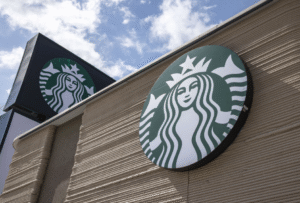American businesses are scaling back as they prepare for more uncertainty in trade policy under President Donald Trump. Companies are canceling orders from China, delaying expansion, and adopting a wait-and-see approach as sweeping import tariffs disrupt supply chains and consumer confidence.
The impact of Trump’s aggressive and often unpredictable tariffs is beginning to show. Economists warn that U.S. consumers could soon see higher prices and fewer goods on store shelves. The mounting uncertainty, combined with rising costs, has begun to take a toll on the broader economy.
Fresh data from the Commerce Department shows the U.S. economy shrank by 0.3% in the first quarter of 2025 — the first contraction in three years. That’s a sharp reversal from the 2.4% growth recorded in the final quarter of 2024. A flood of imports ahead of the new tariffs widened the trade deficit and dragged down growth, while consumer spending also weakened.
A separate report from ADP revealed U.S. employers added only 62,000 jobs in April — less than half of what analysts expected — down significantly from 147,000 in March. Analysts see this as a sign businesses are becoming more cautious about hiring as uncertainty grows.
Boston College economist Brian Bethune didn’t mince words: “All of it,” he said when asked how much of the economic deterioration could be attributed to Trump’s trade policies.
Fulfilling his campaign promises, Trump has overturned decades of U.S. trade policy. He has imposed — and occasionally suspended — tariffs on goods from nearly every country. Most recently, he enacted a blanket 10% tariff on global imports and a staggering 145% tariff specifically on Chinese goods. In retaliation, China placed 125% tariffs on American exports.
The escalating trade war between the world’s two largest economies has rattled global markets and could bring U.S.-China trade to a near halt. Gene Seroka, executive director of the Port of Los Angeles, warned that cargo arrivals are set to fall by 35% in the coming weeks, with shipments from China already drying up and traffic from Southeast Asia also slowing due to new tariffs.
Ocean shipping data reflects the disruption. Following Trump’s tariff announcement in early April, bookings from China to the U.S. plummeted by 60% and have remained low. Ocean carriers have responded by canceling about a quarter of their sailings, according to logistics firm Flexport.
To get ahead of the tariffs, many companies rushed to import goods earlier this year, inflating the trade deficit and depressing growth. But those inventories won’t last forever.
Judah Levine, research director at Freightos, explained that while companies may be able to ride out the storm for a few months using pre-tariff inventory, shortages could appear soon. Key product categories — like furniture, toys, baby products, and plastic goods — are especially vulnerable due to U.S. dependence on Chinese manufacturing and limited alternatives.
Jay Foreman, CEO of toy manufacturer Basic Fun, said he halted shipments of popular products like Tonka trucks and Care Bears from China after the tariffs were announced. He expects store shelves to empty quickly once current stock runs out.
Similarly, Kevin Brusky, who owns APE Games in St. Louis, is sitting on 7,000 copies of board games still in a warehouse in China. Paying the tariffs would erase his profits, so he’s launching a crowdfunding campaign to cover the extra costs. Still, demand may force him to import the games and raise prices from $40 to $45.
Retailers across the U.S. are pausing store openings and lease signings as they assess consumer behavior. According to Naveen Jaggi, president of retail advisory services at JLL, retailers want to hold off on long-term commitments until they understand how customers react to price hikes.
Consumer sentiment is already taking a hit. According to the Conference Board, economic confidence among Americans dropped for the fifth month in a row, reaching its lowest level since the early days of the COVID-19 pandemic. Nearly one-third of consumers expect hiring to slow — a level not seen since the Great Recession.
Because consumer spending makes up around 70% of the U.S. economy, reduced spending could tip the country into a downturn. Economist Joseph Brusuelas estimates there’s a 55% chance of a recession within the next year. Torsten Slok of Apollo Global Management puts the risk at 90% if the current tariff structure holds.
Slok warned that job losses in retail and transportation could begin as early as late May as the decline in imports filters through supply chains. Flexport CEO Ryan Petersen echoed this, saying the more serious threat lies in potential layoffs, not just product shortages.
“Shortages mean companies aren’t selling,” Petersen said. “And if they’re not selling, they can’t pay workers. That’s where the real pain will hit.”
Despite the grim outlook, there’s still hope for a reversal. Trump officials, including Treasury Secretary Scott Bessent, have hinted that the high tariffs may not be sustainable and could be dialed back. However, sudden shifts in policy only add to the uncertainty already plaguing businesses and consumers.
Economist Cory Stahle from the Indeed Hiring Lab warned that if Americans start behaving as if a recession is already underway, economic conditions could deteriorate further. “Even softening some of the recent trade policy changes may not be enough — it may already be too late,” he said.














